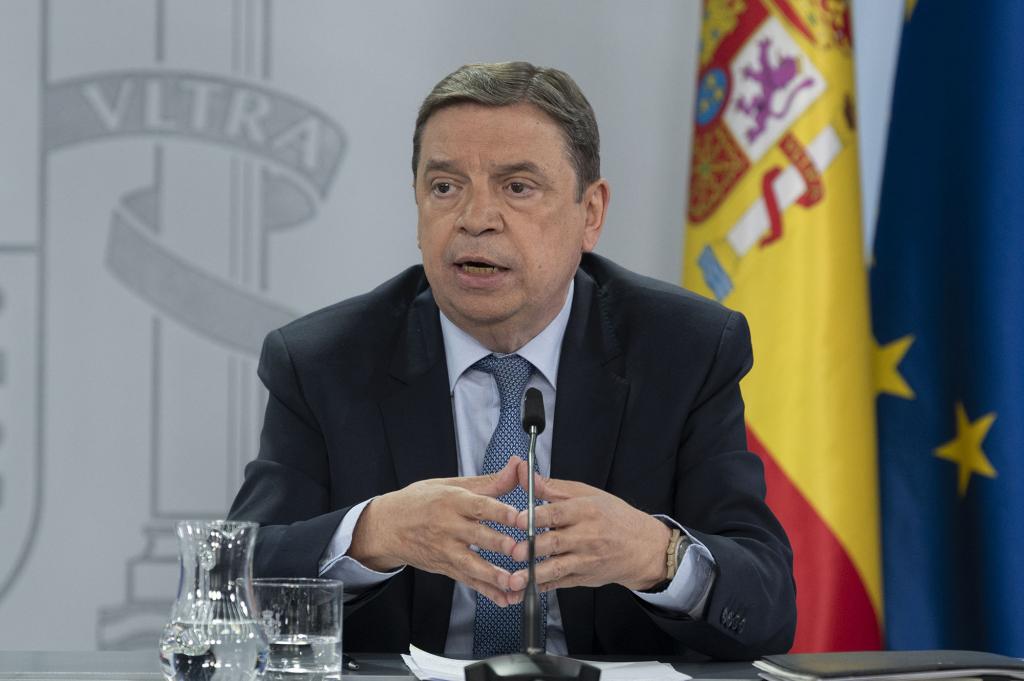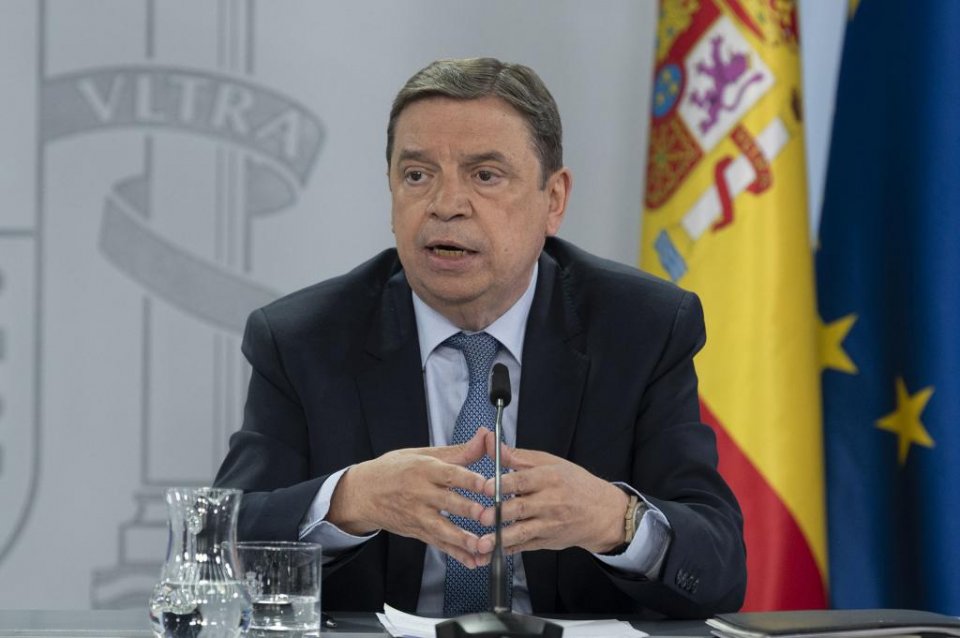Spain is requesting emergency funds from the European Union to support farmers and ranchers amid extreme drought conditions in its agricultural heartlands, Agriculture Minister Luis Planas said on Tuesday.
Planas wrote to the European Commissioner for Agriculture, Janusz Wojciechowski, on Monday to plead for aid for Spain’s 890,000 farm workers, including from the bloc’s agricultural crisis reserve and unused rural development funds, he said.
‘There is drought, there are high temperatures, but they are much more accentuated in the case of the Iberian Peninsula,’ Planas said at a press briefing following a cabinet meeting on Tuesday, describing the urgent financial assistance as of ‘the utmost importance’.
Spain already received €64.5 million last year from the EU Common Agricultural Policy’s crisis reserve to cope with the increased cost of raw materials linked to Russia’s invasion of Ukraine, but five consecutive years of drought in some regions have worsened an already difficult situation. ALSO READ: Drought in Spain and across Europe could be the ‘worst in 500 years’.
Currently, 27% of Spanish territory is classified as in drought ’emergency’ or ‘alert’, according to the Ecological Transition Ministry, and water reserves are at 50% of capacity nationally. In Spain’s most important agricultural region, Andalusia, the situation is far worse. The Guadalquivir river basin is at 24.8% of its capacity, and farmers in the region have had their water allowance for irrigation cut by up to 90% in some cases. ALSO READ: Spanish government vows to block farming near threatened wetlands.
Spain is the world’s biggest exporter of olive oil, and an important producer of fruits and vegetables. The drought has already driven up Spanish olive oil prices to record levels.
The agriculture minister said he had also asked the EU to provide a higher advance payment ahead of the next season, and urged ‘flexibility’ in meeting the strict requirements of the bloc’s agricultural policy. The government also announced a 1.8-billion-euro tax cut for affected farmers.
To make matters worse, Spain’s state weather agency has predicted temperatures will rise towards the end of the week, and will peak closer to the July average than those expected for late April. Last year was Spain’s sixth driest — and the hottest since records began in 1961.
ALSO READ: Drought-stricken countries, led by Spain & Senegal, to share expertise.
ALSO READ: Unseasonal warm weather continues, as drought forces shutdown of power plant.
ALSO READ: Confirmed: 2022 was Spain’s hottest year on record.
Cerca de 800.000 agricultores y ganaderos se beneficiarán de la rebaja mínima del 25 % en el IRPF para paliar las consecuencias de la sequía y la guerra en Ucrania.
— La Moncloa (@desdelamoncloa) April 25, 2023
Además, el BOE recoge una rebaja de entre el 30 % y el 50 % para sectores más vulnerables.https://t.co/yVruNG1ISm pic.twitter.com/Zlydv1CET7

Sign up for the FREE Weekly Newsletter from Spain in English.
Please support Spain in English with a donation.
Click here to get your business activity or services listed on our DIRECTORY.
Click here for further details on how to ADVERTISE with us.


